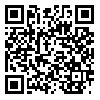Volume 15, Issue 4 (Winter 2021)
jmed 2021, 15(4): 244-259 |
Back to browse issues page
Download citation:
BibTeX | RIS | EndNote | Medlars | ProCite | Reference Manager | RefWorks
Send citation to:



BibTeX | RIS | EndNote | Medlars | ProCite | Reference Manager | RefWorks
Send citation to:
Keykha A. Designing a mentoring model to enhance the human capital of faculty members in medical universities. jmed 2021; 15 (4) :244-259
URL: http://jmed.ssu.ac.ir/article-1-1166-en.html
URL: http://jmed.ssu.ac.ir/article-1-1166-en.html
Ph.D Student of Economics and Finance Management of Higher Education, University of Tehran, Tehran, Iran , ahmadkeykha8984@gmail.com
Abstract: (2748 Views)
Introduction: The purpose of present study was to analyze the content of domestic and foreign articles in the field of mentoring faculty members to provide a model for promoting the human capital of faculty members in medical universities.
Methods: This research has been compiled by a synthesis research review (Meta-synthesis strategy). Therefore, after designing the research questions (what are the main components of the faculty mentoring model? What are the factors influencing the faculty mentoring model? What are the main characteristics of mentoring and mentoring faculty members? What are the faculty mentoring challenges? Systematic search of articles in time period (1390-1399) (2000-2020) in Persian and English in Magiran databases, SID; Human, Noormags, ScienceDirect, Eric, Sage with the keywords of "Mentoring Faculty Members" and "Mentoring in Higher Education". Consequently, out of 73 researches, 38 researches acquired the final analysis.
Result: Findings in response to the first question, with 5 sub-categories (regular prior planning, preparation, correct implementation, systematic feedback and results management), in response to the second question, in 3 sub-categories (incentive capacity development, effective cooperation, interests and expectations) Mentor and Menti), in response to the third question, with 3 secondary sub-categories (Menti personality traits, Menti specialized traits and Menti cognitive traits) and Mentor faculty members, including 5 traits (Mentor personality traits, Mentor specialized traits, counseling services, empowerment research and educational empowerment) were classified. In response to the fourth question, they were categorized into 6 sub-categories (inappropriate interactions, weak mental performance, weak mental performance, unfamiliarity with academic norms, inefficient management, lack of planning).
Conclusion: Considering the importance of Mentoring programs in the development of human capital of faculty members of medical universities, the identified components should be considered by the managers of the higher education system to improve the performance of faculty members.
Methods: This research has been compiled by a synthesis research review (Meta-synthesis strategy). Therefore, after designing the research questions (what are the main components of the faculty mentoring model? What are the factors influencing the faculty mentoring model? What are the main characteristics of mentoring and mentoring faculty members? What are the faculty mentoring challenges? Systematic search of articles in time period (1390-1399) (2000-2020) in Persian and English in Magiran databases, SID; Human, Noormags, ScienceDirect, Eric, Sage with the keywords of "Mentoring Faculty Members" and "Mentoring in Higher Education". Consequently, out of 73 researches, 38 researches acquired the final analysis.
Result: Findings in response to the first question, with 5 sub-categories (regular prior planning, preparation, correct implementation, systematic feedback and results management), in response to the second question, in 3 sub-categories (incentive capacity development, effective cooperation, interests and expectations) Mentor and Menti), in response to the third question, with 3 secondary sub-categories (Menti personality traits, Menti specialized traits and Menti cognitive traits) and Mentor faculty members, including 5 traits (Mentor personality traits, Mentor specialized traits, counseling services, empowerment research and educational empowerment) were classified. In response to the fourth question, they were categorized into 6 sub-categories (inappropriate interactions, weak mental performance, weak mental performance, unfamiliarity with academic norms, inefficient management, lack of planning).
Conclusion: Considering the importance of Mentoring programs in the development of human capital of faculty members of medical universities, the identified components should be considered by the managers of the higher education system to improve the performance of faculty members.
Type of Study: Research |
Subject:
General
Received: 2020/11/21 | Accepted: 2021/02/9 | Published: 2021/03/18
Received: 2020/11/21 | Accepted: 2021/02/9 | Published: 2021/03/18
Send email to the article author
| Rights and permissions | |
 |
This work is licensed under a Creative Commons Attribution-NonCommercial 4.0 International License. |







